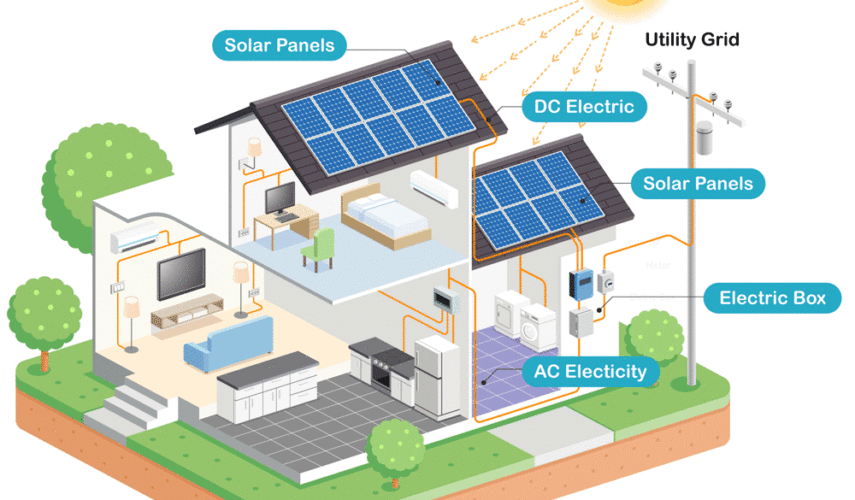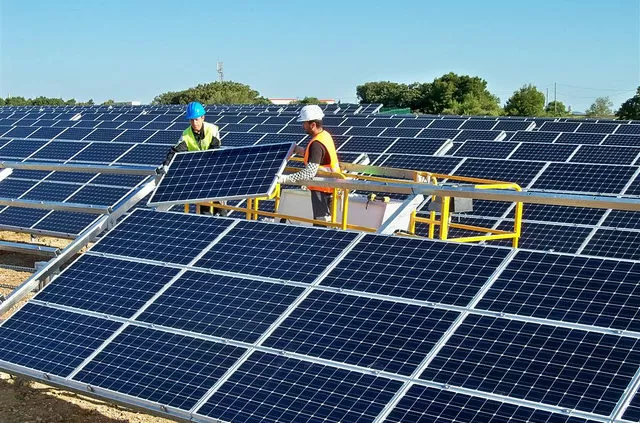In recent years, the global shift towards sustainable practices has seen businesses across various industries explore renewable energy sources to reduce their carbon footprint and operational costs. Among these, the integration of solar power into flour mills, commonly known as solar atta chakki has emerged as a promising solution. This innovative approach not only aligns with environmental stewardship but also offers several tangible benefits for business owners.
1. Cost Savings: One of the primary advantages of installing a solar atta chakki is the significant reduction in energy expenses. Traditional flour mills rely heavily on grid electricity, which can be costly and subject to fluctuations in prices. By harnessing solar energy, businesses can mitigate these expenses by generating their own electricity on-site, thereby reducing reliance on the grid and minimizing the impact of rising energy costs.
2. Renewable Energy Credits: Investing in solar power allows business owners to capitalize on renewable energy credits and incentives offered by governments and environmental agencies. These credits can translate into financial benefits, tax incentives, and rebates, further enhancing the economic viability of solar atta chakki Business. Additionally, businesses can enhance their reputation as environmentally conscious entities, attracting environmentally-conscious consumers and stakeholders.
3. Energy Independence: Solar atta chakkis provide businesses with a reliable and sustainable source of energy, reducing dependence on non-renewable resources such as coal, oil, and natural gas. This increased energy independence not only insulates businesses from the volatility of fossil fuel markets but also contributes to long-term resilience and stability in operations. Moreover, solar power systems require minimal maintenance, offering hassle-free operation for business owners.
4. Environmental Sustainability: By harnessing solar energy, flour mills can significantly reduce their carbon footprint and environmental impact. Unlike conventional energy sources, solar power generation produces no greenhouse gas emissions or air pollutants, helping combat climate change and improve air quality. Implementing solar atta chakkis demonstrates a commitment to sustainable business practices, fostering a positive relationship with eco-conscious consumers and communities.
5. Reliability and Scalability: Solar atta chakkis are highly reliable and scalable, making them suitable for businesses of all sizes. Whether operating a small-scale flour mill or a large industrial facility, solar power systems can be tailored to meet specific energy demands and production requirements. Additionally, advancements in solar technology have improved efficiency and energy storage capabilities, ensuring consistent power supply even in adverse weather conditions.
6. Long-term Investment: Investing in Solar atta chakki represents a sound long-term investment for businesses, offering substantial returns over the system’s lifespan. With proper planning and installation, solar power systems can generate electricity for 25 years or more, providing a reliable and cost-effective energy solution for years to come. As energy prices continue to rise and environmental concerns escalate, the value of solar power investments will only increase over time.
Conclusion – The adoption of solar atta chakkis presents a myriad of benefits for business owners, ranging from cost savings and energy independence to environmental sustainability and long-term profitability. By harnessing the power of the sun, flour mills can not only optimize their operations but also contribute to a cleaner, greener future for generations to come. As the renewable energy revolution continues to gain momentum, embracing solar technology remains a strategic imperative for businesses seeking to thrive in a rapidly evolving marketplace.




Leave a comment